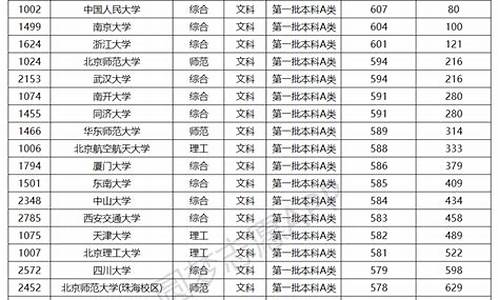您现在的位置是: 首页 > 教育政策 教育政策
高考反义疑问句,高中反意疑问句
tamoadmin 2024-05-19 人已围观
简介反义疑问句概念:表示提问人的看法,没有把握,需要对方证实。构成:两部分构成:前一部分是一个陈述句,后一部分是一个简短的疑问句,两部分的人称时态应保持一致。1.陈述部分肯定式+疑问部分否定式2.陈述部分否定式+疑问部分肯定式They stay here, don’t they?She was excited yesterday, wasn’t she?He can’t ride a bike, ca

反义疑问句
概念:表示提问人的看法,没有把握,需要对方证实。
构成:两部分构成:前一部分是一个陈述句,后一部分是一个简短的疑问句,两部分的人称时态应保持一致。
1.陈述部分肯定式+疑问部分否定式
2.陈述部分否定式+疑问部分肯定式
They stay here, don’t they?
She was excited yesterday, wasn’t she?
He can’t ride a bike, can he?
特殊反义疑问句的用法:
1.当陈述部分的主语是I , everyone, everything, nobody 时,后面的疑问句应表示为
I am a student, aren’t I
Everyone is in the classroom, aren’t they?
Everything begins to grow in spring, doesn’t it?
Nobody will go, will they?
2.与含否定意义的词有关的反意疑问句
如果陈述部分含有never, hardly, scarcely, seldom, no, nothing, nobody, few, little等具有否定意义的词,应将该句视为否定句,其反问部分要用肯定式。例如:
They have never met each other before, have they?
You have nothing more to say, have you?
Few people know him, do they?
3.与主语有关的反意疑问句
(1)如果陈述部分的主语是指示代词this或that,或是不定代词something, anything, nothing, everything等,由于它们是第三人称单数并且指代事物,其反问部分的主语为it。 例如:
This / That is your bike, isn’t it?
Nothing can stop us now, can it?
(2)如果陈述部分的主语是不定代词someone(body), anyone(body), everyone(body), no one, nobody 等,由于它们是第三人称单数并且指代人,其反问部分的主语可以是they也可以是泛指第三人称单数的he。例如:
Everyone passed the exam, didn’t they / he?
Someone is coming, aren’t they / isn’t he ?
Anyone can see it, can’t they / he?
(3)如果陈述部分的主语是指示代词these 或those,应把它们视为第三人称复数,其反问部分的主语为they。例如:
These / Those aren’t guitars, are they?
(4)如果陈述句部分是以I am开头,由于am not没有缩写形式,所以其反问部分用aren’t 或ain’t或am I not。例如:
I am a worker, aren’t I / ain’t I / am I not?
(5)如果陈述句部分的主语是none of...,其反问部分的主语应分别用it、we、you或they来代替。例如:
None of the food was wasted, was it?(注:food不可数,视为第三人称单数。)
None of us are perfect, are we?
None of you went to the cinema, did you?
None of the students heard the news, did they?
(6)如果陈述句部分的主语是some of...,其反问部分的主语分别用we或they代替。例如:
Some of us wanted to stay longer, didn’t we? (注:本句中的some 包括说话人)
On the way back, some of us lost the way, didn’t they? (注:本句中的some不包括说话人)
(7)如果陈述句部分的主语是one,其反问部分的主语仍然用one。例如:
One should be strict with oneself, shouldn’t one?
(8) 如果陈述句部分是由并列连词连接的两个或两个以上的单数名词作主语,其反问部分的主语要用复数。例如:
Neither you nor I am a doctor, are we?
4.与谓语有关的反意疑问句
(1)如果陈述部分含有表推测的情态动词must, can等,其反问部分不能用情态动词,而应根据具体情况而定。例如:
He must be a teacher, isn’t he?
She must have arrived there yesterday, didn’t she?
You must have made the mistake, haven’t you?
但是如果陈述部分含有不表推测的情态动词must, can等,则不属此例,试比较:
He must find the proof, mustn’t he?
(2)如果陈述句部分的谓语含有带否定前缀dis-, un-, im-或否定后缀-less的词(dislike, discourage, be unfair/ untrue/ unable, etc.),仍按肯定句处理,其反问部分要用否定式。例如:
You dislike it, don’t you?
The patient is unable to move round, isn’t he?
The news that they failed their driving test discouraged him, didn’t it?
但是如果陈述句中的谓语是disappear, be unnecessary等, 则不属此例,要按否定句处理,其反问部分要用肯定式。例如:
It is unnecessary to buy a bigger computer, is it?
(3)如果陈述句部分的谓语是“有”动词have、has或had,其反问部分既可用have的适当形式,也可用do的适当形式。例如:
Tom has an interesting book, hasn’t / doesn’t he?
(4)如果陈述句部分的谓语是不作“有”讲的行为动词have、has或had,其反问部分只能用do的适当形式。例如:
You have headaches, don’t you?
You had a good time yesterday, didn’t you?
(5)如果陈述句部分的谓语是have to或has to,其反问部分只能用do的适当形式。例如:
Alice has to finish her homework now, doesn’t she?
(6)如果陈述句部分的谓语是had better,其反问部分只能用hadn’t。例如:
You had better stay in bed till tomorrow, hadn’t you?
(7) 如果陈述句部分的谓语含有used to,其反问部分既可用use(d)n’t,也可用didn’t。例如:
There used to be some trees in this field, use(d)n’t / didn’t there?
You used to smoke a pipe, use(d)n’t / didn’t you?
(8) 如果陈述句部分的谓语含有ought to,其反问部分既可用oughtn’t,也可用shouldn’t。例如:
Zhou Lan ought to pass the National College Entrance Examinations, oughtn’t / shouldn’t she?
(9) 如果陈述句部分的谓语是表示愿望的wish,其反问部分只能用may(的肯定式)。例如:
I wish t go to Beijing for a short visit, may I?
5. 与祈使句有关的反意疑问句
(1)以表示建议的肯定祈使句开头的反意疑问句,其疑问部分通常为will you,也可以是won’t you。(我们可以把该祈使句转换成一个表示委婉建议的疑问句来考虑。)例如:
Please turn down the radio, will / won’t you?
Wait for a moment, will / won’t you?
(2) 以否定祈使句开头的反意疑问句,其疑问部分为will you。(思路同上。)例如:
Please don’t draw on the wall, will you?
(3) 以Let’s开头,表示建议的祈使句,由于句中的主语实际上包括听、说双方,所以其疑问部分为shall / shan’t we。例如:
Let’s have a rest, shall / shan’t we?
(4) 由Let’s not开头,表示建议的祈使句,其疑问部分用all right或O. K.。例如:
Let’s not go shopping, all right / OK?
(5) 以Let us / me开头,征询意见的祈使句,由于句中的主语实际上仅指对方,所以其疑问部分为will you。 例如:
Let us go there, will you ?
Let me have another try, will you?
6.与感叹句有关的反意疑问句
如果陈述部分是感叹句,其反问部分要用否定式。如果陈述部分有省略,要将省略部分恢复后才能确定反问部分的写法。例如:
What a beautiful day (it is ), isn’t it?
How clever the girl is, isn’t she?
7.与there be…句型有关的反意疑问句
如果陈述句部分是there be…句型,其反问部分要用…there。例如:
There is a map on the wall, isn’t there?
8.与复合句有关的反意疑问句 (检测题: 33—38 )
(1)一般来说,如果陈述部分是主从复合句,其反问部分的主语和助动词应与主句的主语和助动词保持一致。因为这种复合句的重点在主句。例如:
If he hasn’t finished his work, he can’t go out to play, can he?
(2)以第一人称(I / We)+ think / believe / know / imagine / suppose / guess / expect / etc.开头的主从复合句,其疑问部分的主谓语应与从句的主谓语保持一致。因为这种复合句的重点在从句。例如:
I think he has arrived at the airport, hasn’t he?
(3)以第一人称(I / We)+ don’t + think / believe / know / imagine / suppose / guess / expect / etc.开头的主从复合句,则应将主句中的“否定”还原到从句中处理,即将该主从复合句转换成一个具有否定含义的单句来考虑。例如:
I don’t believe she knows it, does she?
(4)以第二、三人称 + think / believe / know / imagine / suppose / guess / expect / etc.开头的主从复合句,视为一般的主从复合句,其反问部分的写法与(1)同。例如:
You believe they will come, don’t you?
He believes they will come, doesn’t he
I think she is a teacher,isn't she?
Nobody is here,is there?
something is wrong with my watch,isn't there?
反意疑问句
一、什么是反意疑问句
英语中,反意疑问句是由陈述句和附在其后的附加疑问句组成。其中附加疑问句是对陈述句所说的事实或观点提出疑问,起证实作用,一般用于证实说话者所说的事实或观点。
二、反意疑问句用法说明
◇注意:
反意疑问句前后两部分谓语应是,“肯定陈述+否定疑问”或“否定陈述+肯定疑问”
简略问句如果是否定式,not应与be,do,will等系动词、助动词、情态动词缩写
简略问句的主语不用名词,应用人称代词
当说话者的目的不在疑问,而是为了加强语气时,用降调
当说话者的目的在疑问,则用升调
陈述部分含“too...to”时,是否定句
1) 陈述部分的主语是I,疑问部分要用 aren't I.
I'm as tall as your sister,aren't I?
(我和你姐姐一样高,对吗?)
2) 陈述部分的谓语是wish,疑问部分要用may +主语。
I wish to have a word with you, may I?
(我希望可以和你说话,可以吗?)
3) 陈述部分用 no, nothing, nobody, never, few, seldom, hardly, rarely, little等否定含义的词时,疑问部分用肯定含义。
The Swede made no answer, did he / she?
Some plants never blown (开花), do they ?
4) 含有ought to 的反意疑问句,陈述部分是肯定的,疑问部分用shouldn't / oughtn't +主语。
He ought to know what to do, oughtn't he? / shouldn't he?
5) 陈述部分有have to +v. (had to + v.),疑问部分常用don't +主语(didn't +主语)。
We have to get there at eight tomorrow, don't we?
6) 陈述部分的谓语是used to 时,疑问部分用didn't +主语或 usedn't +主语。
He used to take pictures there, didn't he? / usedn't he?
7) 陈述部分有had better + v. 疑问句部分用hadn't you?
You'd better read it by yourself, hadn't you?
8) 陈述部分有would rather +v.,疑问部分多用 wouldn't +主语。
He would rather read it ten times than recite it, wouldn't he?
9) 陈述部分有You'd like to +v. 疑问部分用wouldn't +主语。
You'd like to go with me, wouldn't you?
10) 陈述部分有must 的疑问句,疑问部分根据实际情况而定。
He must be a doctor, isn't he?
You must have studied English for three years, haven't you? / didn't you?
He must have finished it yesterday, didn't he?
11) 感叹句中,疑问部分用be +主语。
What colours, aren't they?
What a smell, isn't it?
12) 陈述部分由neither… nor, either… or 连接的并列主语时,疑问部分根据其实际逻辑意义而定。
Neither you nor I am engineer, are we?
13) 陈述部分主语是指示代词或不定代词everything, that, nothing, this, 疑问部分主语用it。
Everything is ready, isn't it?
14) 陈述部分为主语从句或并列复合句?
a. 并列复合句疑问部分,谓语动词根据邻近从句的谓语而定。
Mr. Smith had been to Beijing for several times, he should have been in China now, shouldn't he?
b. 带有定语从句,宾语从句的主从复合句,疑问部分谓语根据主句的谓语而定:
He is not the man who gave us a talk, is he?
He said he wanted to visit Japan, didn't he?
c. 上述部分主句谓语是think, believe, expect, suppose, imagine等引导的定语从句,疑问部分与宾语从句相对应构成反意疑问句。
I don't think he is bright, is he?
We believe she can do it better, can't she?
15) 陈述部分主语是不定代词everybody, anyone, somebody, nobody, no one等,疑问部分常用复数they,有时也用单数he.
Everyone knows the answer, don't they? (does he?)
Nobody knows about it, do they? (does he?)
16) 带情态动词dare或need的反意疑问句,疑问部分常用 need (dare ) +主语。
We need not do it again, need we ?
He dare not say so, dare you?
当dare, need 为实义动词时,疑问部分用助动词do + 主语。
She doesn't dare to go home alone, does she?
17) 省去主语的祈使句的反意疑问句,疑问部分用will you。
Don't do that again, will you?
Go with me, will you / won't you ?
注意: Let's 开头的祈使句,后用shall we(或用shan't we) ?
Let us 开头的祈使句,后用will you(或won't you)?
Let's go and listen to the music, shall we(或用shan't we)?
Let us wait for you in the reading-room, will you (或won't you)?
18) 陈述部分是"there be"结构的,疑问部分用there省略主语代词。
There is something wrong with your watch, isn't there?
There will not be any trouble, will there?
19) 否定前缀不能视为否定词,其反意疑问句仍用否定形式。
It is impossible, isn't it?
He is not unkind to his classmates, is he?
20) must在表"推测"时,根据其推测的情况来确定反意疑问句。
He must be there now, isn't he?
It must be going to rain tomorrow, won't it?
21)当主句是由so引起的一个句子,而且译为“这么说来”时,疑问部分的谓语形式(肯定或否定)应与主句保持一致。
So you have seen the film, have you?
So he has not been to Beijing ,hasn't he?
『补:Let's和Let us的区别』
◇1.Let's是Let us的缩写。包括说话人和听话人双方在内,含有催促、建议或请对方一起行动的意思。在听话人表示赞同建议时可只用Let's.如:
---Shall we go by train?
---Yes,let's.
◇2.当请求对方允许自己(第一人称复数)做某事时,要用Let us,这里的 us 不包括听话对方在内,不能缩写为Let's.
如两个同学对老师说:
Please let us remove the bookshelf for you.
让我俩给你移动一下书架。
◇3.两者在构成附加疑问句时,方法不同。如:
Let's go to see the film,shall we ?
咱们去看**,好吗?
Let us go to see the film,will you?
让我们去看**,好吗?
『当陈述句部分有情态动词must时,反意疑问部分有四种情况 』
(1)must表示“必须、禁止“时,反意疑问部分要用must (mustn’t) 。
例 You mustn’t stop your car here, must you? 你不能把车停在这地方,知道吗?
(2)must表示“有必要”时,反意疑问句部分要用needn’t。
例 They must finish the work today, needn’t they? 他们今天必须要完成这项工作,是吗?
(3)当must用来表示对现在的情况进行“推测”时,反意疑问部分要根据must后面的动词采用相应的形式。
例 He must be good at maths, isn’t he? 他数学一定学得很好,是吗?
(4)当must用来表示对过去的情况进行“推测”(must + have done)时,如强调对过去情况的推测(一般句中有过去的时间状语),反意疑问句部分要用“didn’t + 主语”;如果强调动作的完成(一般没有过去时间状语),反意疑问句部分要用“haven’t / hasn’t + 主语”。
例 She must have read the novel last week, didn’t she? 她上星期一定读了这本小说了,是吗?
You must have told her about it, haven’t you? 你一定把这事告诉她了,是吗
快速记忆表
陈述部分的谓语 疑问部分
I aren't I
Wish may +主语
no,nothing,nobody,never,
few, seldom, hardly, 肯定含义
rarely, little等否定
含义的词
ought to(肯定的) shouldn't/ oughtn't +主语
have to+v.(had to+v.) don't +主语(didn't +主语)
used to didn't +主语或 usedn't +主语
had better + v. hadn't you
would rather + v. wouldn't +主语
you'd like to + v. wouldn't +主语
must 根据实际情况而定
感叹句中 be +主语
Neither…nor,
either…or 连接的根 据其实际逻辑意义而定
并列主语
指示代词或不定代词
everything,that, 主语用it
nothing,this
并列复合句 谓语根据邻近从句的谓语而定
定语从句,宾语从句的
主从复合句 根据主句的谓语而定
think,believe,expect,
suppose,imagine等引导 与宾语从句相对应的从句
everybody,anyone,
somebody,nobody,no one 复数they, 单数he
情态动词dare或need need (dare ) +主语
dare, need 为实义动词 do +主语
省去主语的祈使句 will you?
Let's 开头的祈使句 Shall we?
Let us 开头的祈使句 Will you?
there be 相应的谓语动词+there(省略主语代词)
否定前缀不能视为否定词 仍用否定形式
must表"推测" 根据其推测的情况来确定反意疑问句
反意疑问句的回答
对反意疑问句的回答,无论问题的提法如何,如果事实是肯定的,就用yes,事实是否定的,就要用no。要特别注意陈述句部分是否定结构,反意疑问句部分用肯定式提问时,回答yes或no与汉语正好相反。这种省略回答的yes要译成“不”,no要译成“是”。
例 ---He likes playing football, doesn’t he? 他喜欢踢足球,是吗?
---Yes, he does. / No, he doesn’t. 是的。/ 不是。
---His sister didn’t attend the meeting, did she? 他妹妹没有参加会议,是吗?
---Yes, she did. / No, she didn’t. 不,她参加了。/ 是的,她没参加









